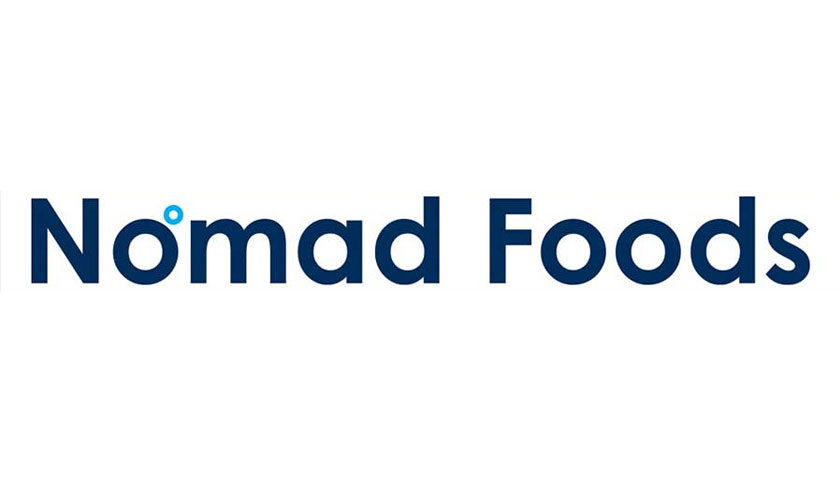Nomad Foods, Europe’s leading frozen food company whose popular brands include Birds Eye, Ledo, iglo, Findus and Frikom, has today published its 2024 sustainability report, providing updates on progress against targets for the period January to December 2024.
‘Appetite for a Better World’, the company’s sustainability strategy, is built around three pillars: Better Sourcing, Better Nutrition and Better Operations, supported by timebound targets aligned to the UN’s Sustainable Development Goals.
The new report shows that Nomad Foods is making significant progress against its core sustainability commitments.
David Pettet, Head of Sustainability at Nomad Foods, said, “Consumers are increasingly recognising the value of frozen food, not only for its convenience, affordability, taste and nutritional benefits, but also for its role in reducing food waste. These attributes are more than relevant, they are critical as we confront global challenges such as climate change, food insecurity and supply chain volatility. At Nomad Foods, we view sustainability not merely as a responsibility, but as a strategic opportunity to help shape a more resilient and sustainable food system.”
Stéfan Descheemaeker, Nomad Foods’ Chief Executive Officer, said, “As we celebrate our tenth anniversary as a public company, sustainability remains a fundamental driver at the heart of our business. Our new purpose, ‘Making Mealtimes Better with the Goodness of Frozen Food’, inspires our sustainability strategy, and I am very proud of the progress we have made in 2024 towards our goals.”
2024 Sustainability Report Highlights
Better Sourcing
In 2024, 99.6% of Nomad Foods’ sourced fish and seafood volumes were MSC- or ASC-certified, growing from 99.5% in 2023. As a result, the proportion of sales volume that was MSC- or ASC-eco-labelled also increased, from 98.2% in 2023 to 99.3% in 2024. The company is on track to achieve its target of sourcing 100% of fish and seafood from sustainable fishing or responsible farming by the end of 2025. Ten of the fifteen European markets that Nomad Foods operates in have achieved 100% certification.[3]
Nomad Foods has also made strong progress towards their target in sustainable farming practices, with 94.9% of sourced vegetables, potatoes, fruit and herbs receiving a score of silver or gold on the Farm Sustainability Assessment (FSA)[4] in 2024. This is an increase of 2.6 percentage points since 2023.
Better Nutrition
As Europe’s leading frozen food company, Nomad Foods plays an important role in shaping healthier diets by making nutritious and affordable options available to consumers. Nomad Foods’ Nutrition Manifesto outlines eight key commitments to encourage positive choices, including crafting healthier products, providing clear and simple consumer nutrition information and making healthier, sustainable options more convenient. The company’s refreshed Nutrition Policy is the foundation of their leading approach to nutrition.
In 2024, 96% of branded net sales came from Healthier Meal Choices (HMCs), with 100% of new product innovations meeting HMC criteria.[1] 99.7% of the Nomad Foods’ portfolio is now free from artificial flavour, colourants and taste enhancers.
Birds Eye’s Steamfresh Meals range earned finalist status for the UK Food and Drink Federation Diet & Health Award. These healthy, vegetable-rich frozen meals provide one or two of a consumer’s recommended five daily vegetable servings and 6.4 – 9.6g of fibre per portion, while preserving nutrients through microwave steaming. Across their first nine months on the market alone, Steamfresh meals added more than 3.5 million portions of vegetables onto UK plates. More broadly, across 2024, Birds Eye and Aunt Bessie’s vegetable-based products provided UK consumers with 36,600 tonnes of vegetables at mealtimes; the equivalent of 457,505,188 portions of vegetables.
Consistently delivering strong performance on nutrition, Nomad Foods received a top score of 100 in Health and Nutrition on the Dow Jones Sustainability Index for the 6th consecutive year.[5]
Better Operations
Nomad Foods reduced the total absolute Greenhouse Gas (GHG) emissions in its legacy business2 by 40.8% from an existing 2019 baseline, continuing to exceed the SBTi-approved target of a 25% reduction by 2025.
The absolute carbon emissions for Nomad Foods Group reduced by 7.2% since 2023, following integrations of recently acquired businesses.
Since 2015, the business has cut edible food waste as a proportion of food production by 37.7%, in line with their 2030 commitment to reduce food waste by 50% against a 2015 baseline.
In 2024, Nomad Foods became the first manufacturer to sign up to Move to -15°C, an industry coalition launched at COP28 and dedicated to cutting carbon emissions in the frozen food supply chain. Following an eighteen month industry-leading study with Campden BRI, results show that storing frozen food at -15°C, instead of the industry standard -18°C (0°F), can reduce freezer energy consumption by 10 – 11% without any noticeable impact on the safety, texture, taste or nutritional value of a product.[6]
Read the 2024 Nomad Foods Sustainability Report here to find out more: https://www.nomadfoods.com/appetite-for-a-better-world/sustainability-reports/

